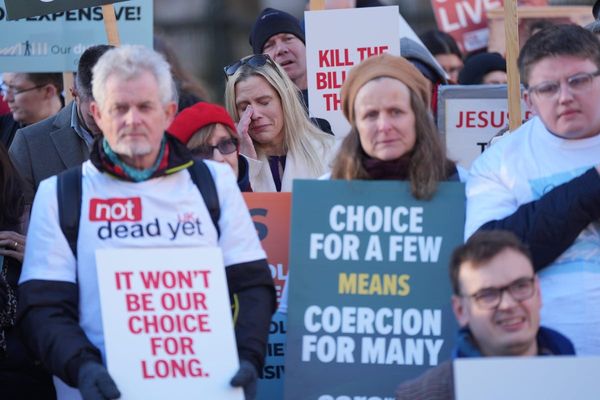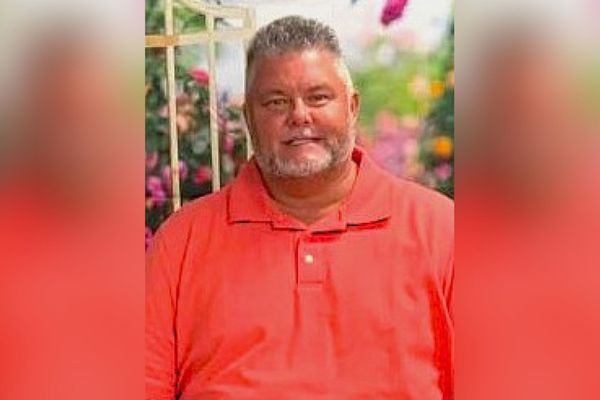
A woman who lived for two years with a cancer diagnosis and even had her eggs frozen after having immunotherapy was left in “complete shock” when doctors told her she had been wrongly diagnosed.
Theatrical make-up artist Megan Royle, 33, underwent nine cycles of treatment after she was told she had skin cancer, and endured surgery, treatment which affected her fertility and worry for nothing.
She has won compensation from the Royal Marsden NHS Foundation Trust, and Imperial College Healthcare NHS Foundation Trust, which runs the pathology service used by Chelsea & Westminster Hospital, as both misinterpreted her results, leading to the misdiagnosis in 2019.
The error was only discovered when she moved North in 2021 and another trust reviewed her records.
Ms Royle, from Beverley, East Yorkshire, said she struggled to understand what happened and felt “complete shock”.
Megan underwent a 2cm wide excision of tissue to remove the “cancer”— (Hudgell Solicitors/PA Wire)
She added: “You just can’t really believe something like this can happen, and still to this day I’ve not had an explanation as to how and why it happened.
“I spent two years believing I had cancer, went through all the treatment and then was told there had been no cancer at all.”
She was referred for a dermatology review at Chelsea & Westminster Hospital by her GP in 2019 when she reported that a mole on her upper arm had increased in size, become itchy and scabbed.
A biopsy was carried out and reviewed Ms Royle, then aged 29, was told melanoma – a type of skin cancer – had been identified.
She was then referred to the specialist cancer unit at The Royal Marsden Hospital. Her biopsy was reviewed and, again, she was told that this confirmed a melanoma.
She underwent a 2cm wide excision of tissue to remove the “cancer”.
Immunotherapy treatment she received could impact on her fertility, she was told, and so she underwent egg preservation.
Megan was told immunotherapy treatment could impact her fertility— (Hudgell Solicitors/PA Wire)
After she had nine treatment cycles up to May 2021, and after being told there was no sign of the disease, she moved North as the lockdown had prevented her from working in the theatre.
When a new hospital trust reviewed her file and scans, the error with her diagnosis was discovered.
She said: “When the doctors sat me down and told me it took a while to sink in.
“You’d think the immediate emotion would be relief, and in some sense it was, but I’d say the greater emotions were frustration and anger.
“When I was first told I had cancer and that I needed surgery to remove it and treatment which could impact on my fertility, my approach was simply to say ‘yes, let’s do what we need to do’.
“I wasn’t thinking about having children at that time, but having children was always something I planned for later in life, so having eggs preserved was something I didn’t hesitate doing.
“All in all, I got my head around it pretty quickly, as difficult as that was.
“However, then to be told two years later, having undergone the treatment and lived with the worry, I found being told I’d never had cancer at all hard.
“I wasn’t in a good place for quite some time to be honest, strange as that may seem.”
She took her case to medical negligence specialists Hudgell Solicitors who won an out of court settlement with the two trusts.
Associate Solicitor Matthew Gascoyne said: “This was obviously a quite unusual case in that Megan was mistakenly diagnosed with skin cancer, something which obviously had a significant psychological impact upon her given her young age.
“This was exacerbated by her needing surgery, and being advised that the only treatment she could have may impact upon her fertility.
“She suffered from sickness throughout her treatment, so it was a difficult time for her.
“Finally, the psychological impact was worsened by being given the news that she’d not had cancer at all.
“All of this was entirely avoidable.
“It was only when her post treatment care was transferred to another Trust that this was discovered.
“Had she not moved, she may well now still be in a situation where she was believing she was in remission and that the cancer could return.”
Both NHS trusts have been approached for comment.







